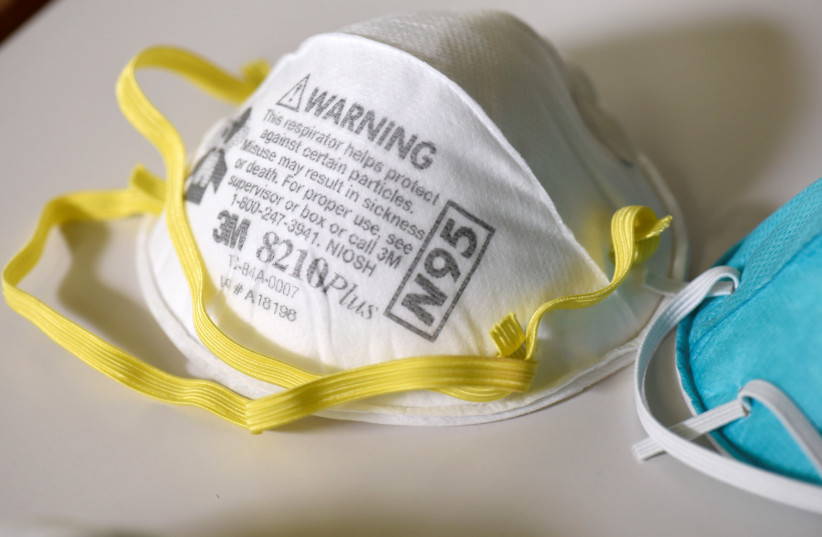N95 masks can be safely cleaned and re-worn up to 25 times without losing their effectiveness, a new study conducted by researchers in Boston at Beth Israel Deaconess Medical Center and the Massachusetts Institute of Technology and published last week in the American Journal of Infection Control shows.
During the pandemic’s early months, healthcare facilities faced a supply shortage of personal protective equipment, including N95 masks, which protect medical staff from infectious pathogens. This information could prevent a similar shortage in future epidemics.
According to a January 6 news release from the Association for Professionals in Infection Control and Epidemiology (APIC), over the course of the study, researchers put seven N95 masks through a process involving vaporized hydrogen peroxide (VHP), which they stated in the release is a "standard decontamination approach."
After going through the VHP process 25 times, the N95 masks were found to retain a 95 percent filtration efficiency or greater, researchers said.
Each time a mask was put through the VHP process, researchers assessed it to determine the extent to which its user seal, fit and filtration were impacted. They found that "even after 25 decontamination cycles there were no alterations to respiratory integrity or filtration efficiency among the seven N95 respirators the researchers evaluated," the release said.

“The findings from our study expand upon previous findings and show that VHP is a relatively safe method for reprocessing N95 respirators and could help address shortages in future epidemics,” said lead author Christina F. Yen, MD, who was a fellow in medicine at BIDMC during the research and is now at the University of Texas, Southwestern.
“It is important that we now find ways to scale and translate this disinfection capability to smaller hospitals and resource-limited healthcare settings that could benefit just as much – perhaps more – from this type of personal protective equipment reprocessing in future disaster scenarios.”
